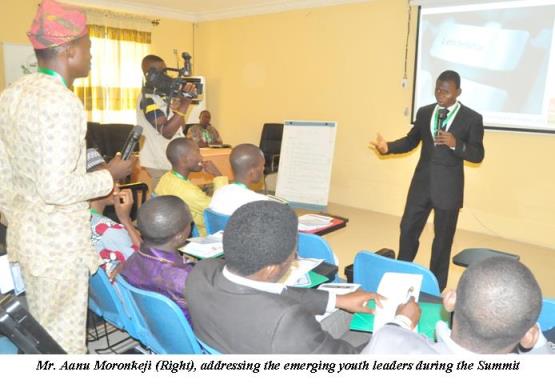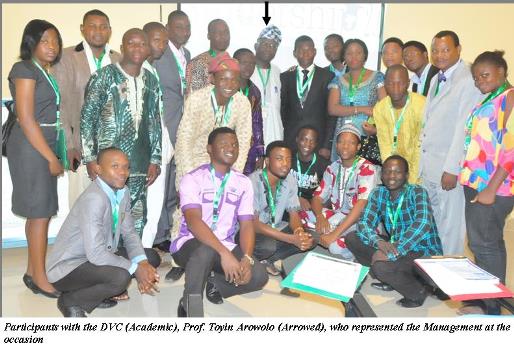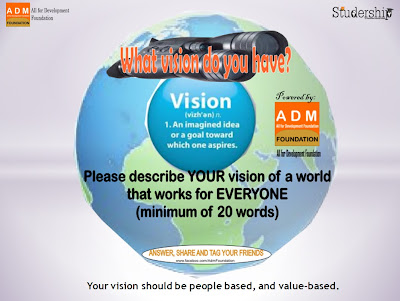I know you think! And you know / think you think. However, how much time do you dedicate to reflect on your life – your actions, inactions, values, achievements, frailties, prospect and the future? How often do you examine the pace – most importantly, the impacts – you create each day?
These questions remind us of the ever-dynamic need to consciously and consistently examine how we live (not just existing) daily. As the Greek philosopher, Socrates opined, ‘an unexamined life is not worth living’. A few days ago, I shared an opinion with IdeaMensch on my most productive habit as a social entrepreneur – and human :). Guess what that is: reflective thinking.
Each day, I become more conscious of the need to do more than just setting out time to consciously think, but to make it fun, and more productive. This daily action makes me get the best in almost every activity. The choice of reflectively having fun thinking through all my actions and plans makes me review promptly where I had made a mistake, where I can contribute more, what lessons I learnt, how I can put the lessons to use, what to share with others, among other options.
Fortunately, my parents had inculcated a maxim into our daily lives, while we (my nuclear family) were much younger. My dad taught my siblings and me to always end each day asking ‘How Many Lives Have I Touched Positively Today?’. This bed-time activity – I must confess – had been a foundation for reflective thinking.
One of the major catalysts to reflective thinking is asking the right questions. The right questions – coupled with honestly sincere answers – have a way of enhancing your reflective thinking prowess and adding value to the quality of life you live. Most times, when I reflect, I think in terms of my values, activities, experience and futurity.
I suggest you brace up with the type of questions you ask yourself, and be honest in working on the quality of result you can get, by working on your answers. As John Maxwell shared in his book ‘Thinking for a Change’, you could reflectively think about – just as he does – your values, relationship and experiences.
THINKING RELATED TO VALUES
• Personal Growth: What have I learnt today that will help me grow? How can I apply it to my life? When should I apply it?
• Adding Value: To whom did I add value today? How do I know I added value to that person? Can I follow up and compound the positive benefit he or she received?
• Teamwork: What did I do with someone else that made both of us better? Would the other person agree that it was a win/win? Can we do something else together to continue our mutual success?
• Leadership: Did I lead by example today? Did I lift my people and organisation to a higher level? What did I do, and how did I do it?
• Physical Health: Did I exercise at my optimal heart rate for thirty-five minutes today? Have I exercised at least five times in the last seven days?
• Personal Faith: Did I represent God today? Did I practice the Golden Rule? Have I ‘walked the second mile’ with someone?
THINKING RELATED TO RELATIONSHIP
• Marriage and Family: Did I communicate love to [my spouse], children and the grandchildren today? How did I show love? Did they return it?
• Friends: Have I been a good friend this week? To whom? What did I do? Is there something else I need to do? Is there another friend who needs me?
• Inner Circle: Have I spent enough time with my key players? What can I do to help them be more successful? In what areas can I mentor them?
• God: Have I spent time with God? What is he teaching me now? Am I learning? Am I obeying? Have I continually talked to him today?
THINKING RELATED TO EXPERIENCE
• Discoveries: What did I encounter today to which I need to give more thinking time? Are there lessons to be learned? Are there things to be done?
• Memories: Did I create a good memory for someone today? Was it because of a comment, an action, or a shared experience?
• Difficulties: What went wrong? Could I have changed it? What do I need to do differently next time?
• Successes: What went right? Did I create it? Is there a principle I can learn from the experience?
• People: Whom did I meet? What were my impressions?
• Conclusions: Have I closed my day appropriately? Have I expressed gratitude? Have I learned something, loved someone? Have I enjoyed and lived the day to the fullest?
Are the above questions helpful? You may add yours, or create different set of questions and methods to use in reflective thinking. Begin by creating general questions that can be used after any event, meeting or experience. Then create more specific questions related to your values and relationships. The main thing is to create questions that work for you, and write down any significant thought or insight that comes to you during the reflection time.
Before I conclude today’s post, please be reminded that though writing down the good thoughts that come out of your reflective thinking has value, nothing helps you grow than consciously putting your thoughts into action. Start setting out time for reflective thinking, stay away from distraction, ask yourself helpful questions and take prompt action.
I will love to read from you. Post your comment in the box below, or send me a mail (damolamore@gmail.com).
How often do you engage in reflective thinking?
What impact does it have on you?
What questions do you ask when thinking reflectively?








